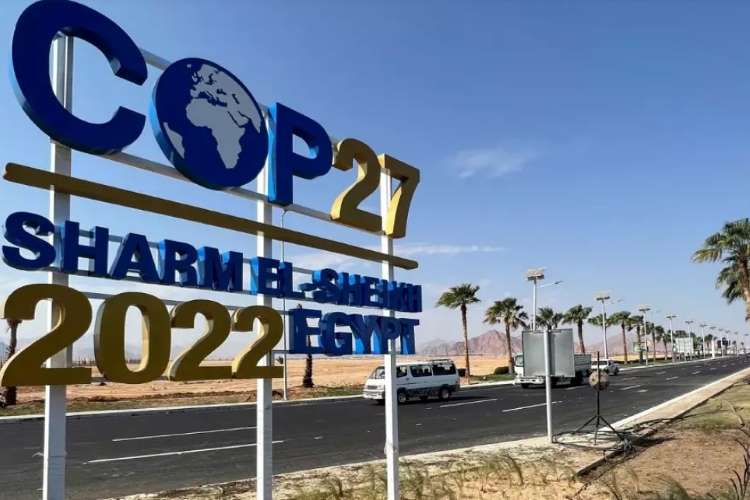
More than 100 heads of states including US President Joe Biden and UK Prime Minister Rishi Sunak will attend the United Nations climate summit (COP27) held in Sharm el-Sheik, Egypt from today. Environment Minister Bhupender Yadav will head the Indian delegation to the conference.
The annual conference will be attended by more than 30,000 delegates who will deliberate on action to mitigate the climate crisis. Climate reparations from the developed to developing nations for addressing the damage caused by global warming could dominate the discussions. The success of COP27 will depend on the rich countries’ willingness to pay reparations, an emotive issue for the global south seeking climate justice.
READ I COP27: India’s ancient learnings can help climate change mitigation efforts
Fault lines over climate reparations
While there is no globally accepted definition for climate reparations, also known as loss and damage payments, it refers to the economic impacts on livelihoods and property as well as non-economic losses to life and biodiversity. The poor nations are seeking an assurance that the $100 billion commitment made by rich nations in 2009 will be met. Denmark became the first country to pledge loss and damage compensation when it announced $13.3 million support.
The developing nations accuse the rich nations of lack of sincerity in compensating poorer countries which are finding it difficult to meet their commitments owing to the lack of technological and funding support. Representatives of more than 130 nations could press for a loss and damage finance facility. The developed countries responsible for the bulk of greenhouse gas emissions are against the setting up of a dedicated fund as they are wary of accepting a liability.
Funding of loss and damage is on the provisional agenda for the climate conference, but it becoming part of the final agenda will depend on the policymakers representing the rich and poor nations. The rich countries are unlikely to endorse financial support for low- and middle-income countries which are on the frontline of the climate crisis. In last year’s climate conference, they blocked a plan to set up a loss and damage financing body.
READ I G20 presidency: India must focus on climate action, malnutrition
Energy crisis on COP27 agenda
Another major issue that is expected to dominate the discussions is the global energy crisis triggered by a combination of factors such as the Russia-Ukraine war and slow recovery from the Covid-19 pandemic. Europe which is heavily dependent on Russian crude oil and gas is looking to reduce its reliance on Russian fuel. To counter their strategy, Russia has cut the supplies, derailing industrial production in several European countries.
The West’s determination will be tested when Europe faces peak winter temperatures. Several European countries such as Germany have reactivated their decommissioned coal-based plants. The result of the new energy dynamics in Europe could mean more greenhouse gas emissions that could aggravate global warming.
China’s position on climate crisis
COP26 ended on a positive note when China and the US agreed to work together on climate change. But the bilateral relations between the world’s largest emitters deteriorated over American policy on Taiwan after the visit of Nancy Pelosi, Speaker of the House of Representatives.
The US faced extreme weather events such as wild fires in California and floods in Florida that caused deaths and destruction. China also faced severe heat waves, droughts and floods this year. The world’s largest economies are capable of bringing in dramatic gains in climate action through collaboration. The combined efforts would definitely be more than the sum of the parts.
Their shared influence played a major role in the 2015 Paris Agreement. Their cooperation has been key to the progress of climate action. Their cooperation helped revive the stalled progress of climate talks in Glasgow last year when China said its emissions would peak by 2030 and it would achieve net-zero emissions by 2060.
Promises to keep
A large number of nations raised their climate commitments at COP26 in Glasgow that need to be flowed up this year. Analysis by independent experts show that several countries and corporates that made tall promises on greenhouse gas emissions have not framed policies to achieve those goals.
Apart from tracking individual country goals, COP27 should also measure action towards collective goals such as the global methane pledge that promised a 30% reduction in emissions of this greenhouse gas. Countries need to evolve policies and plans to improve measurement of emissions to achieve this goal.
Apart from governments, businesses must also outline how they are planning to meet their promises. Environmental activists have sounded warnings about corporates looking to “greenwash” their records.
